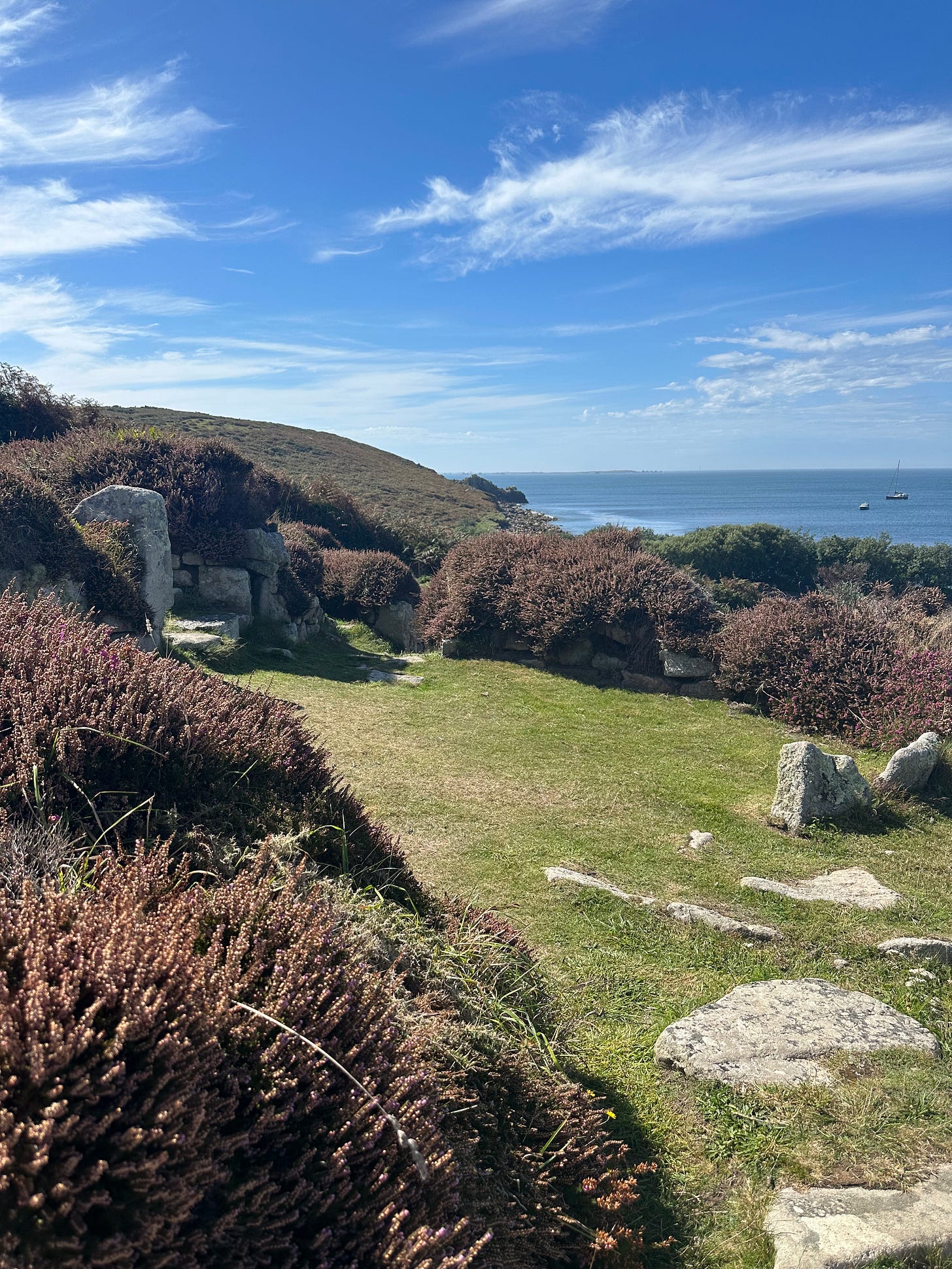Edinburgh Fringe: check. Delightful trip through Cornwall with my dad: also check. I’m back in the USA and now the only responsibility that awaits me is that of my new full-time job: being a freelance writer. Awesome!!!!!!!!!!! [screams, dies]
Other personal news:
Wrote about the continued curious life of Harry Potter fandom for Polygon, have been blocking a lot of TERFs in my mentions as a result
Will be presenting at AOIR 2023 next month on the panel “Ideology and Affect in Political Polarization and Fandom Online” with my friend Sam Vilkins, who I met on the Doctor Who side of Tumblr in 2010
This week in fandom
During the Fringe I don’t think I read a single article—my head was way too full of clown chaos to process anything resembling news or takes or trends. So I’m still catching up on stuff from the last month and a half, and trying to re-teach myself how to have coherent thoughts about it.
For example, I really enjoyed this Atlantic piece by Rhaina Cohen from last month about how to improve the depth and quality of adult friendships by modeling them on the freeform, creative friendships of childhood, replacing regimented activities with the “uninhibited openness” brought about by play.
I’ve been doing research into play and creative flow states for my book, and I wholeheartedly agree with the central thrust of the piece. There are so many ways to rediscover the “intimacy that kids have effortless access to,” and making those practices part of your everyday life will have long-reaching effects. An important element, unnamed by Cohen, is enthusiasm, and the embrace thereof. Obsession and enthusiasm characterize the childhood playfulness which she recounts—I, too, had a set of intricate friend group rituals based on the Warriors series (who didn’t?). But vitally, my enthusiasm for StarClan et al extended to the online world, where I became a moderator of the Warriors Forest ProBoards RP forum at age 12—an immense honor, let me tell you.
For the most part, Cohen uses her reporting to make the case that it’s an open-ended, freeform approach to in-person social activity—hanging out without any particular purpose, unbounded by hard endpoints—which will activate the inner child and allow us to enjoy deep, playful connection.
But as any adult who has spent time in fandom communities can tell you, “improvisational fun” is at the heart of transformative fan culture. You don’t need to be an extrovert who can naturally handle never-ending hangouts in order to access this kind of playfulness, as I know firsthand.
Reading this article I was kind of like “yes…. wbk… and?” Like, wow, you're saying uninhibited playfulness and collaborative creativity helps form close long-lasting friendships? That's crazy, should we throw a party, should we invite Naomi Novik? While Cohen duly namechecks Dungeons and Dragons as well as Barbenheimer (see my Garbage Day piece on this), I think the missing piece here is that creativity and enthusiasm in general brokers intimacy. Like, I can name at least four couples that have gotten together just via meeting through one small fandom of mine. The Fringe, one of the most long-form, most playful hangouts I’ve ever been party to, is one massive orgy of friendship and also other things. We, as adults, need to be more silly in general all the time.
This week in polar exploration
While polar tourism has been thriving over the past few years, with no sign of checked growth, the vast enterprise that is Antarctic science is currently dealing with the knock-on effects of the pandemic and associated financial difficulties.
This year the National Science Foundation canceled millions of dollars worth of research for which grants had already been offered and confirmed. This is only partly a budgetary problem—the real issue is logistics, and this article in Science goes deep on what the specific knotty problems are that are threatening the vital ongoing scientific work on the seventh continent.
Because of construction work delayed by the pandemic, there is limited housing at McMurdo, restricting the number of support staff that can be onsite in order to facilitate the transportation and construction that field research, especially, relies on.
This reveals the inverted hierarchy at McMurdo—though the scientists are the ostensible raison d’etre of the entire station, they come and go as NSF grants are handed around—it’s the support staff, the cooks, drivers, janitors, and maintenance guys, some of whom have spent their entire careers on the ice, whose presence hold the power to say what science gets done (or not).
Australian Antarctic research is also under threat, with scientists being told that finding $25 million AUD of savings in its budget would be necessary, although they have since been assured by government officials that there were no cuts planned to the program’s research or employees.
Antarctic sea ice suffered extensive losses this year, and scientists are universal in pleading for their work to be supported as they document the ongoing existential threats to the continent delicate ecosystems. Even if Australia’s program suffers no budget or job cuts after all, the cuts to the American program will likely affect them too—as one of the scientists quoted in the article observes, Antarctic science is by nature collaborative, with data collected by the researchers of multiple countries active on the continent all necessary for ongoing analysis and conservation.

